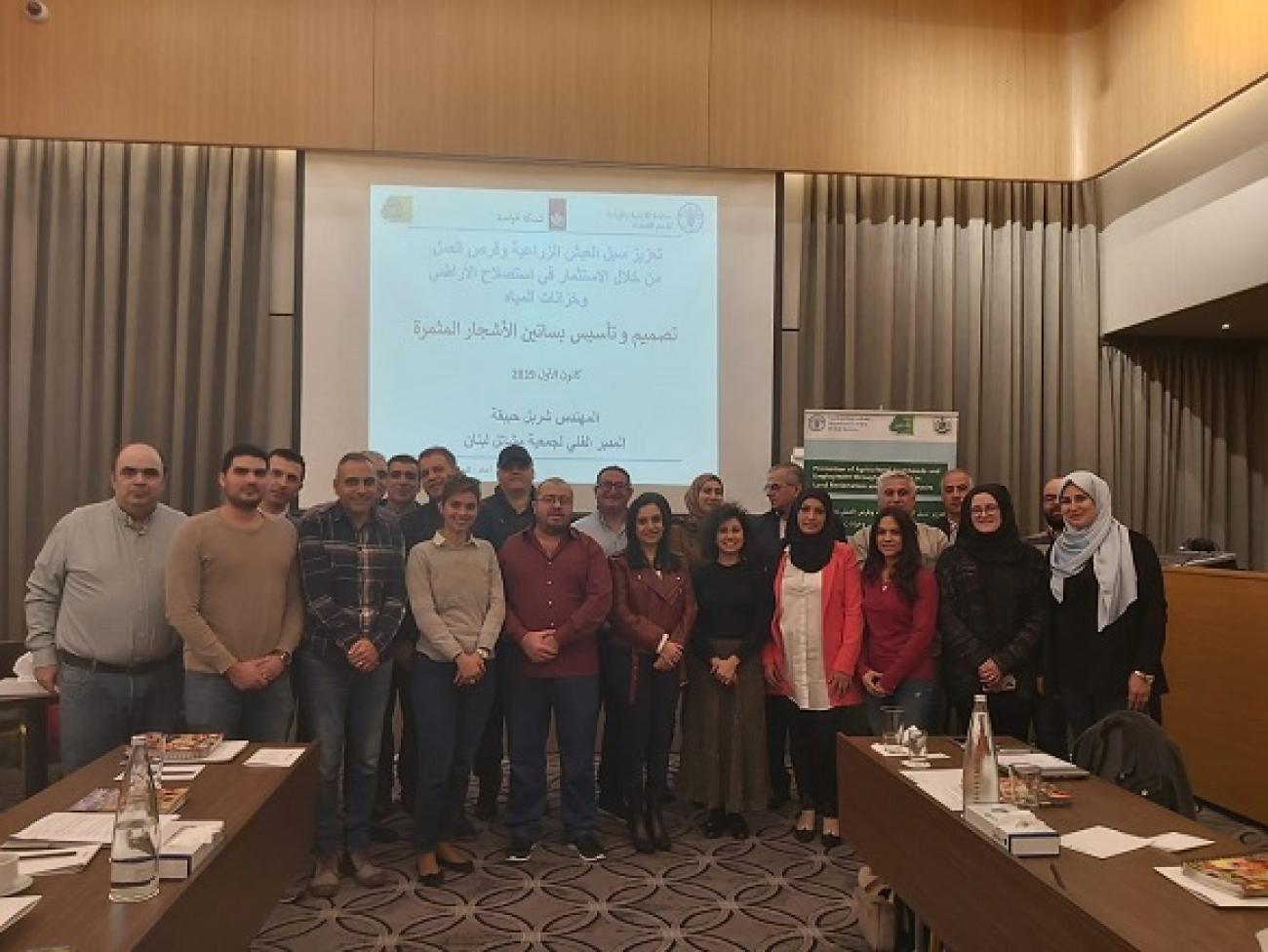Because a knowledgeable institution is a productive one, FAO opted to address the Green Plan’s staff regarding orchard establishment.
“The establishment of an orchard deserves planning and preparation and the seedlings need to be carefully selected to ensure good production,” said Charbel Hobeika, technical expert leading a two-month training organized by the United Nations Food and Agriculture Organization (FAO) in Lebanon.
The training was held under the framework of FAO’s project “Promotion of Agricultural Livelihoods and Employment through Investment in Land Reclamation and Water Reservoirs”, funded by the Kingdom of the Netherlands, and aims to benefit the Green Plan (GP) staff who are in direct contact with GP beneficiaries investing in land reclamation, 90% of whom opt to plant fruit trees on their lands.
Eleven men and nine women participants were trained on orchard establishment, varieties and rootstocks selection for a number of main fruit species planted in Lebanon, in addition to estimating the costs and revenues of such investments. “The training enabled us to acquire new concepts we didn’t learn in the technical school”, said Samah Badra from the North Bekaa office. For engineer Bassam Harb, the training is important to his work as it provided important tips and guidelines on how to support farmers.
Throughout the training, the trainer shared practical demonstrations of orchards newly established using intensive systems, and trained participants on the pruning of trees, removing weak crotch angles and tip-pruning long branches throughout the seasons. “The trainer is multidisciplinary and the training is well prepared and is based on demand from GP” said Georges Chemaly, Head of Mount Lebanon One regional office. “We can now better speak the farmer’s language,” he added.
“I am eager to take part in the demonstration field days,” said Zeinab Zahraman, from the North Lebanon regional office who found the training very useful. The training will be complemented with a tour of newly established orchards in January & February 2020.
In order to sustain rural communities and to reduce rural exodus, the Lebanese Ministry of Agriculture (MoA) through its affiliated Green Plan (GP), launched in 1963 a demand-driven support program allowing farmers to benefit from subsidies to invest in agriculture infrastructure including land reclamation for agriculture, soil and water conservation, planting of fruit trees, and other complementary works. The GP program has empowered a large number of farmers to invest in reclaiming their abandoned lands or rehabilitating/upgrading low-productivity lands.







